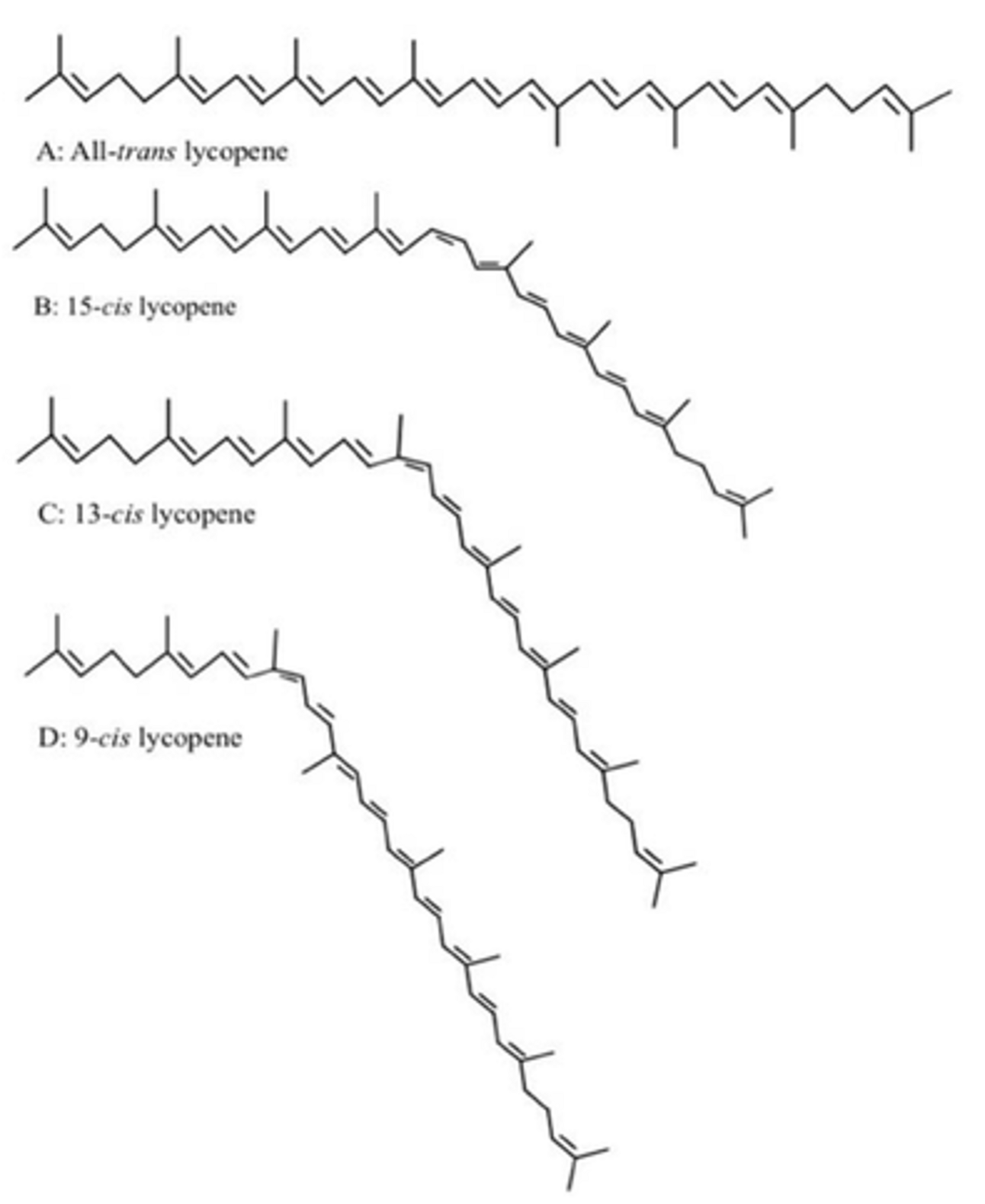


Hello {{First Name|there}},
You’ve probably heard that tomatoes are good for you—but did you know why?
One reason is lycopene, the natural red pigment found in many fruits and vegetables. Lycopene belongs to a class of plant compounds known as carotenoids, and emerging research suggests it may play a protective role in heart health and longevity.
What is Lycopene?
Lycopene is a fat-soluble carotenoid, meaning it dissolves in fat and is best absorbed when eaten with a source of healthy fat (like olive oil or avocado). It acts as a bioactive compound with antioxidant and anti-inflammatory properties that help the body manage oxidative stress.
It exists in two main forms, or isomers, which differ in structure and how they behave in the body:
Trans-lycopene: This is the natural form found in raw tomatoes. It’s linear in shape, which makes it less bioavailable.
Cis-lycopene: This form mostly results from heating or processing (like in tomato sauce or purée). Its curved structure makes it easier for the body to absorb and use.
Even though both forms are beneficial, cis-lycopene has greater bioavailability, meaning your body can absorb more of it from foods.
What the Research Shows
A recent 2024 study looked at health data from over 7,400 U.S. adults using the National Health and Nutrition Examination Survey (NHANES), a long-running government project that tracks nutrition and health over time.
Researchers measured lycopene in the bloodstream (called serum lycopene), and tested its relationship to health. They concluded that people with higher serum lycopene levels were significantly less likely to experience cardiovascular or all-cause mortality (death from any health reason).
Here’s what they found:
Those with the highest total lycopene levels had a 51% lower risk of all-cause mortality and a 47% lower risk of heart-related death, compared to those with the lowest levels.
When looking at serum trans- and cis-lycopene separately, both were also significantly linked to lower risks of mortality.
Our interpretation:
One important detail to consider is that this study didn’t track what kinds of foods participants were eating. So while cis-lycopene was linked to better outcomes, it’s unclear whether that lycopene came from nourishing sources like tomato sauce or from processed products like ketchup. Some types of ketchup may be minimally processed, while others could contain added sugars and preservatives. Although some processed tomato products may be higher in cis-lycopene, they may also contain added sugars and preservatives. Therefore, it’s always important to consider overall food quality, rather than focusing on a single component.
The takeaway is encouraging: Getting lycopene from nourishing foods, especially cooked tomatoes, may offer protection for your heart and overall health.
Boost Your Lycopene Intake
Lycopene is found in many red-hued fruits and vegetables, but some foods pack a much stronger punch than others. Here are three top picks, based on their lycopene content and nutrient density:
Sun-dried Tomatoes (~45.9 mg per 100g / ~7 mg per tablespoon)
These concentrated tomatoes are one of the richest natural sources of lycopene.Tomato Purée (~21.8 mg per 100g / ~6–7 mg per 2 tablespoons)
Cooking tomatoes increases the bioavailability of lycopene, making purée a powerful source.Guava (~5.2 mg per 100g / ~4 mg per ½ cup, chopped)
This tropical fruit is naturally rich in lycopene, along with vitamin C and fiber.
Note: mg stands for milligrams, a unit equal to one-thousandth of a gram. While there’s no official daily target for lycopene, emerging research suggests that even modest intake from food may help support heart health and protect against chronic disease.
Want to add more lycopene to your day?
Download our free Bioactive Spotlight guide featuring food sources and simple tips to help you include more of this heart-healthy and antioxidant-rich compoundin your meals.
Which of these lycopene-rich foods do you eat most often?
Start learning AI in 2025
Everyone talks about AI, but no one has the time to learn it. So, we found the easiest way to learn AI in as little time as possible: The Rundown AI.
It's a free AI newsletter that keeps you up-to-date on the latest AI news, and teaches you how to apply it in just 5 minutes a day.
Plus, complete the quiz after signing up and they’ll recommend the best AI tools, guides, and courses – tailored to your needs.
Stay connected with us to receive the latest on evidence-based research, advancements in healthcare, and practical tips.
Best wishes,
- The Angiogenesis Foundation




